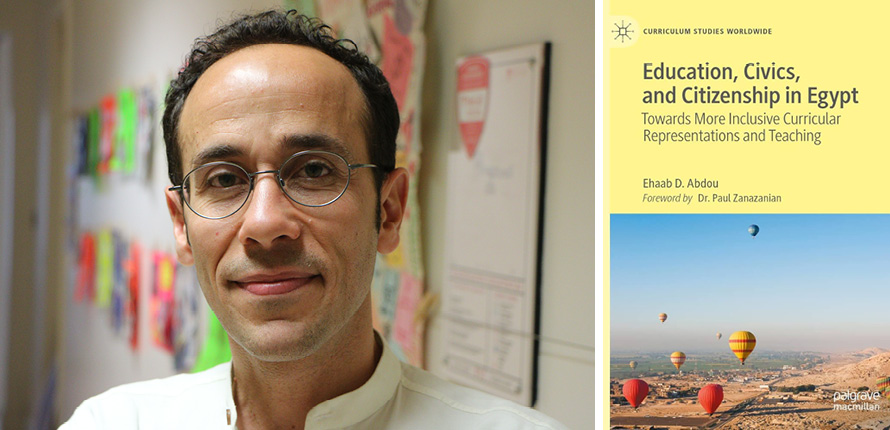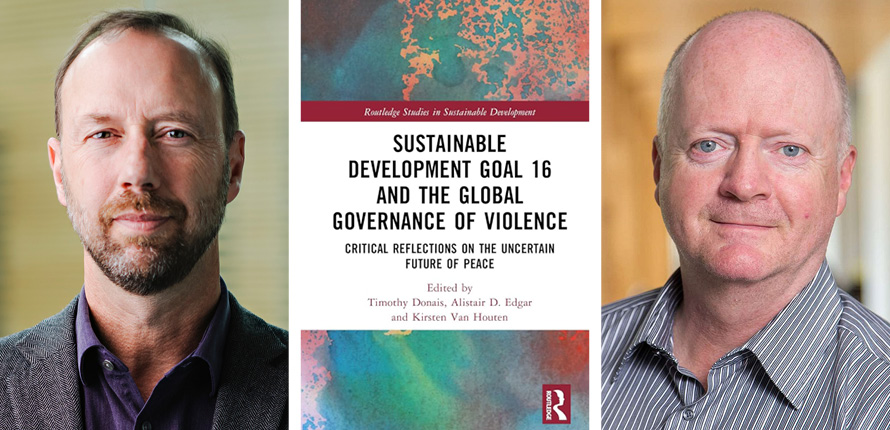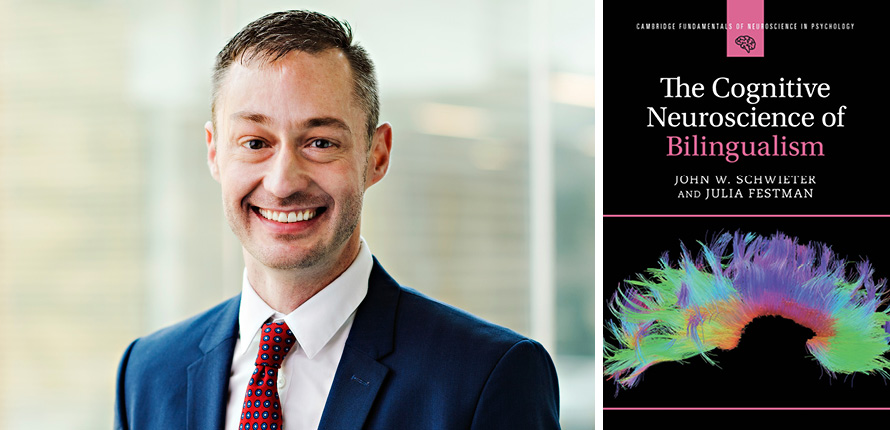We use cookies on this site to enhance your experience.
By selecting “Accept” and continuing to use this website, you consent to the use of cookies.
Search for academic programs, residence, tours and events and more.
Nov. 9, 2023
Print | PDFFour world-class researchers at Wilfrid Laurier University are celebrating the release of new books. In their recent publications, Ehaab D. Abdou, an assistant professor of Global Studies, examines education and civic engagement in Egypt; Timothy Donais, associate professor of Global Studies, and Alistair Edgar, associate professor of Political Science, evaluate global progress toward peace; and John W. Schwieter, professor of Spanish and Linguistics, shares the cognitive neuroscience of bilingualism.

Abdou’s research focuses on making school curriculums more inclusive, particularly in Egyptian and Canadian contexts. His book shares how young people in Egypt understand their country’s dominant historical narratives and the school system’s official curriculum, while proposing a framework to connect historical consciousness with civic action.
“In our increasingly polarized societies, it is important to understand how education and historical narratives shape students’ sense of identity, civic attitudes and civic engagement,” says Abdou. “I hope the book highlights the importance of creating spaces and offering tools for students and teachers to critically engage with their social identities, especially those that are often unconsciously shaped and limited by dominant societal discourses. While it mainly focuses on Egypt, I am hopeful that some of the arguments and findings in the book will be helpful in other contexts, including Canada.”

The United Nations Sustainable Development Goals (SDGs) include 17 objectives designed to shape and direct the global development agenda through 2030. Donais and Edgar, along with their co-editor Kirsten Van Houten, brought together a diverse range of peace and development scholars and practitioners to reflect on the progress made thus far toward Goal 16: promote just, peaceful and inclusive societies. Contributors included their Laurier colleagues Darren Thomas and Terry Mitchell, as well as PhD candidates at the Balsillie School of International Affairs Seyed Ali Hosseini and Eric Tanguay.
“This project was informed by a simple question: at the halfway point in their implementation period, are the SDGs making a difference?” says Donais. “Since COVID-19 and international conflicts have significantly changed the context in which SDG implementation is unfolding, we felt it was important to examine how progress toward Goal 16 has been derailed, and the prospects for getting back on track. While these are tough times for global optimists, the various contributors to the book highlight both successes and failures, as well as the importance of states recommitting themselves to the basic principles underlying the SDGs.”

The human brain is biologically wired to learn language. Approximately 60 per cent of the world’s population knows two or more languages, suggesting the human instinct for language acquisition likely extends to the learning of multiple languages. However, knowledge of how multiple languages are processed by one mind is still limited. Schwieter and his co-author, Julia Festman, build on cognitive psychology, psycholinguistics and neuroscience to offer readers a comprehensive understanding of the multilingual brain and mind.
“Our book is intended for advanced undergraduate and graduate students, along with researchers and academic audiences,” says Schwieter. “Readers will learn about critical issues in the field of bilingualism, including how languages develop, what changes in the brain while acquiring subsequent languages, and what happens to languages in the context of brain injury or neurodegenerative disorders.”